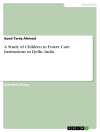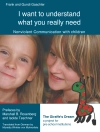This edited book presents the most recent theory, research and practice on information and technology literacy as it relates to the education of young children. Because computers have made it so easy to disseminate information, the amount of available information has grown at an exponential rate, making it impossible for educators to prepare students for the future without teaching them how to be effective information managers and technology users. Although much has been written about information literacy and technology literacy in secondary education, there is very little published research about these literacies in early childhood education. Recently, the National Association for the Education of Young Children and the Fred Rogers Center for Early Learning and Children’s Media at Saint Vincent College published a position statement on using technology and interactive media as tools in early childhood programs. This statement recommends more research “to better understand how youngchildren use and learn with technology and interactive media and also to better understand any short- and long-term effects.” Many assume that today’s young children are “digital natives” with a great understanding of technology. However, children may know how to operate digital technology but be unaware of its dangers or its value to extend their abilities. This book argues that information and technology literacy include more than just familiarity with the digital environment. They include using technology safely and ethically to demonstrate creativity and innovation; to communicate and collaborate; to conduct research and use information and to think critically, solve problems and make decisions.
Table des matières
Introduction: Information Literacy in Early Childhood: What, Why, How, and Where to Next?;
Mary Renck Jalongo.-
Part One: Tools and Strategies .- 1. Virtual Worlds: Young Children Using the Internet;
Ithel Jones and Young-Hee Park.- 2. Supporting Young Children’s Visual Literacy Through the Use of E-Books;
Natalie Conrad Barnyak and Tracy A. Mc Nelly.- 3. Technology-based Literacies for Young Children: Digital Literacy through Computer Programming;
Elizabeth R. Kazakoff.- 4. Teaching with Technology and Interactive Media to Promote Creativity and Arts-Based Learning in Young Children;
De Anna M. Laverick.- 5. Opening Young Minds and Hearts: Employing Technology-Infused Critical Pedagogy in Hybrid Border Spaces;
Crystal Machado.- 6. Using Multimedia Technologies to Support Culturally and Linguistically Diverse Learners and Young Children with Disabilities;
Kavita Rao and James Skouge.- 7. Using Mobile Media Devices and Apps to Promote Young Children’s Learning;
Sharon Judge, Kimberly Floyd and Tara Jeffs.- 8. Planning, Designing, and Implementing Effective Interactive Portfolios in the Primary Grades: Suggestions for Forming Partnerships among Teachers, Students, and Parents;
Esther Ntuli and Lydia Kyei-Blankson.-
Part Two: Issues and Trends .- 9. Young Children as Multimodal Learners in the Information Age;
Nicola Yelland.- 10. Universal Design for Learning and Technology in the Early Childhood Classroom;
Craig Blum and Howard P. Parette.- 11. Developmentally Appropriate Technology and Interactive Media in Early Childhood Education;
Olivia N. Saracho.- 12. Could Computer Games-Based Problem Solving Positively Affect the Development of Creativity in Young Children? A Case Study;
Georgios Fessakis, Dimitrios Lappas and Elisavet Mavroudi.- 13. The Impact of Popular Media on Infant and Toddler Language Development;
Melissa Calderon.- 14. Participatory Youth Culture: Young Children as Media and MOC Makers in a Post-millennial Mode;
Marissa Mc Clure and Robert W. Sweeny.- 15. Young Children at Risk of Digital Disadvantage;
Genevieve Marie Johnson.- Conclusion: Cybersafety in Early Childhood: What Parents and Educators Need to Know;
Kelly L. Heider.












